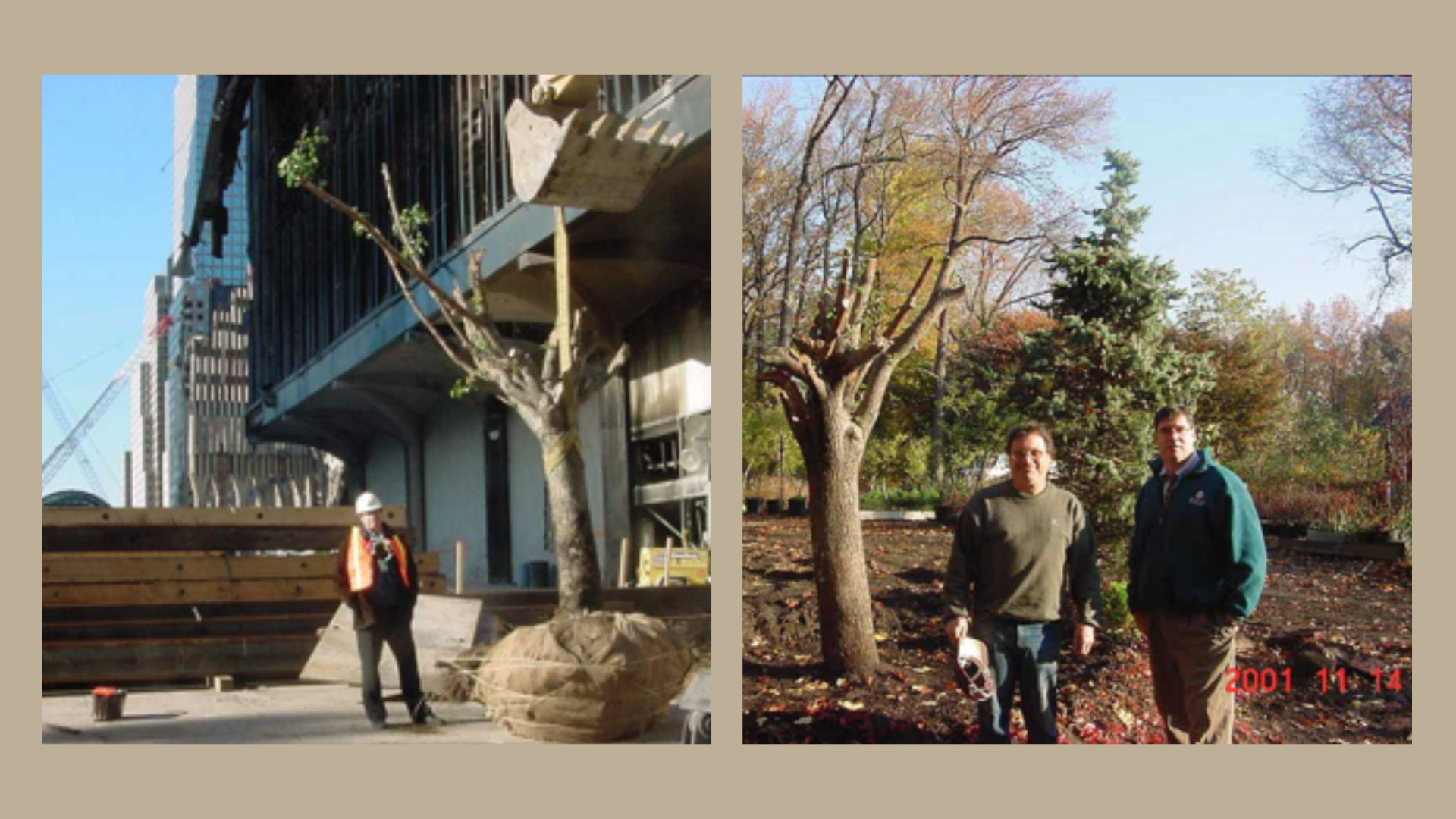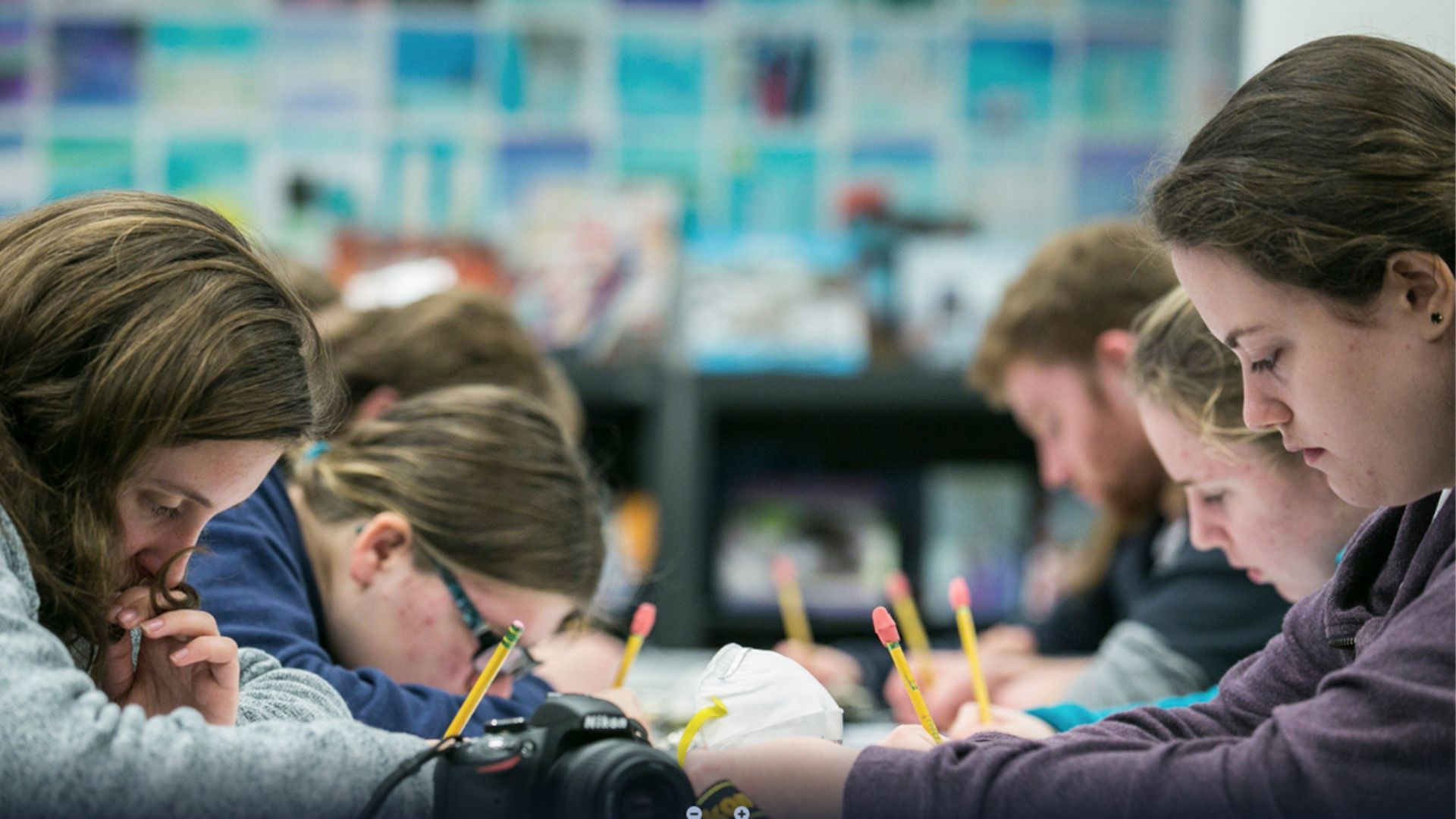Make a donation to the museum
Rescue & Recovery: In Their Own Voices With Rich Palmer
Rescue & Recovery: In Their Own Voices With Rich Palmer
- May 10, 2023
Courtesy Rich Palmer and Ralph Smith
With the 21st anniversary of the formal end to rescue and recovery efforts at Ground Zero fast approaching, we're dedicating this month's "In Their Own Voices" series to Rich Palmer, of the New York City Department of Correction. Palmer answers some questions about the role he played personally in the aftermath of the attacks, and how hard the Department of Correction worked as a whole to ensure safety for the people of New York.
Where were you on 9/11?
On 9/11, I was assigned to 60 Hudson Street, which was the headquarters for the Department of Corrections and my office. I distinctly remember that the morning of 9/11 was sunny with blue skies.
What role did you play in the rescue, recovery, and relief efforts?
When the first tower was hit, I was told to assist NYPD with directing people who were evacuating. I helped ensure pedestrians fleeing would be safe from passing cars, fire trucks, and emergency vehicles. As I was doing so, I saw the explosion from the impact of the second plane hitting the South Tower. At this point, both buildings were on fire. You could see there were people jumping from the windows to try and evade the fire. In fear of the buildings imploding, we were commanded to return to our offices at 60 Hudson Street. There was not much time between the first tower collapsing and the second. It turned Manhattan with sunny blue skies into what looked like a nightmare.
Can you describe the bond between you and your fellow rescue, recovery, and relief workers? How has this community impacted you?
I have created a solid relationship with fellow 9/11 responders and their families because of the bond that was forged that day, the following weeks, and months. I have worked to advocate and ensure that our families got the money that they deserve from the government after the passing of their loved ones. I am very proud of how involved our Correction brothers and sisters have been in the years since, and how we have helped each other in times of need.
What does May 30 mean to you?
This was the last day of operation at Ground Zero. It closed one traumatic chapter and started the rebuilding. It really showed the resilience of New Yorkers.
Do you have any health issues related to your time at Ground Zero?
Yes, I have many health issues. Every day, I take 18 medications to survive.
Why is it so important that new generations with no living memory of 9/11 learn the story and legacy of that day?
The attack on our country is something that should never be forgotten. Correction officers go to schools to teach children and college students about 9/11. It had such a profound impact on our lives and our country. We must ensure we never forget what happened on that tragic day.
Is there anything you'd like to add?
We have lost 28 members in the New York City Department of Correction to 9/11-related-illnesses. Even more today are living with medical and psychological issues. The Correction Department did not receive the same level of recognition for their time at Ground Zero. In fact, the Department of Correction was responsible for running the morgue operation at Bellevue Hospital. They also sifted through the debris at the Fresh Kills landfill in Staten Island to search for personal items of the deceased. It is upsetting that the Department of Correction has not been recognized the same way. We are known as "the Boldest" for a reason. We do our job daily, and when New Yorkers need us, we are always there!
Compiled by Caitlyn Best, Government and Community Affairs Coordinator
Previous Post
Rescue & Recovery: In Their Own Voices With Bram Gunther

With Earth Day front of mind, we're highlighting Bram Gunther, Deputy Director of Forestry and Horticulture for the New York City Parks Department on 9/11, in the April installment of our "In Their Own Voices" series. Gunther talks about his role in saving the Callery Pear that became the Survivor Tree and what trees and nature in general can do for those grieving in a time of crisis.
Next Post
Teacher Appreciation Week Notes of Gratitude

This Teacher Appreciation Week, we're sharing some of the powerful notes we've received from educators about the role we play in teaching the history and legacy of 9/11.



